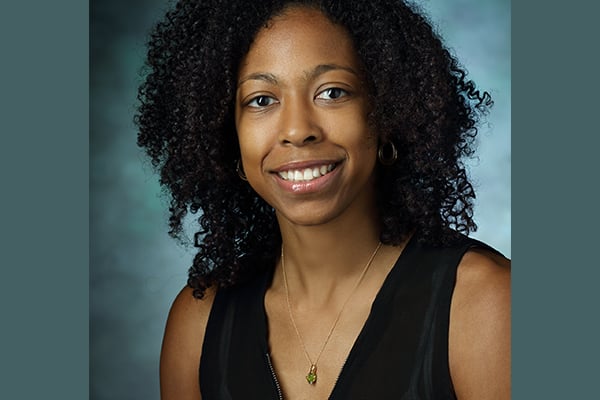Casey Overby Taylor joined the Department of Biomedical Engineering in the spring of 2020. In this interview, she discusses what sparked her interest in engineering, what she hopes to accomplish in the future, and her research on incorporating digital health tools into clinical research and healthcare practices.
What made you pursue a career in engineering?
The summer of my sophomore year in high school I attended a program that solidified my interests in engineering. It was seeing the real-world applications of what I was learning in my math and physics classes that drew me in. That realization extended into my desire to conduct biomedical informatics research with potential to lead to real-world applications.
Why did you choose Johns Hopkins BME? What are you looking forward to most?
A primary appointment in the Johns Hopkins Department of Biomedical Engineering provides the direct link between Engineering and Medicine for the translation of biomedical data science approaches into digital health tools such as wearables and telehealth technologies that are likely to have a great impact. In addition, the opportunity to train and work with talented BME students is exciting to me.
Can you give a brief overview of your current research?
I have a joint research program in Medicine/General Internal Medicine and BME. Research in my lab seeks to address the challenge of how to incorporate digital health tools into clinical research and healthcare practices. A current focus has been to bring together data science methods and design research in order to develop more effective ways to engage study participants and to deliver genomic medicine recommendations to healthcare providers. We have also been able to pivot some of our research to focus on COVID-19, including as part of a collaborative project to study telehealth during the pandemic.
Have you ever experienced a “eureka moment?”
I first recognized the interface between biomedical engineering and biomedical informatics the summer before starting my PhD program in biomedical informatics. Participating in a Bioengineering and Bioinformatics Summer Institute (BBSI) that focused on computational approaches to understand biological systems, I found that by crossing the boundaries of the two fields there is an opportunity to both understand how things work and to engineer new tools to improve or change the status quo.
What do you consider your biggest research accomplishment so far?
So far, my biggest research accomplishment has been to secure AHRQ R21 funding for work that led to two publications. The funding supported a project to develop genomic clinical decision support using an implementation model that engages stakeholders and uses open source decision support platforms. One publication described our use of workflow modeling to identify areas to improve genetic testing processes, and the other paper describes our user-centered software design approach to develop a high-fidelity prototype for delivering multi-gene sequencing panel reports to clinicians that simulates the user experience of the final application.
What impact would you like your work to have?
I would like for outputs of my work to lead to the increased adoption of evidence-based practices in precision medicine through just-in-time delivery of recommendations to clinicians. I would also like to help optimize the overall chance of success of interdisciplinary research teams conducting studies to evaluate engineering products in real-world settings.
What are your goals for the future?
In the short-term, I want to establish industry partnerships in order to turn high-fidelity prototypes from my lab into useful products. I was recently awarded a two-year Microsoft Fellowship that is already enabling this to happen. In the long-term I want to have broadly adopted frameworks for the rapid implementation and deployment of effective and scalable clinical decision support informed by risk assessment models and of digital health behavior interventions. A relevant teaching goal is to develop a course leveraging these frameworks to introduce trainees to how real-world clinical events translate into real-world data, and how insights from those data can be derived and delivered to patients and clinicians.
Do you have any career advice to offer to current students?
I believe a positive attitude toward lifelong learning will make you a better researcher. In a constantly changing world, the desire to obtain new knowledge will motivate asking good questions, investigating and finding answers.

